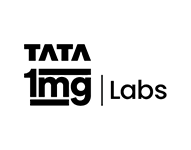Glucose - Fasting
Understanding Glucose - Fasting
What is Glucose - Fasting?
Fasting Blood Sugar, also called Fasting Plasma Glucose test, measures your fasting blood glucose level. Fasting means you should not eat or drink (anything except water) for 8 hours. This test is used to screen for prediabetes and diabetes and check the effectiveness of medications or dietary changes for people diagnosed with diabetes.
Apart from diabetes, higher levels of glucose can be seen in insulin resistance, hormonal imbalances, and pancreatic, liver, or kidney disease.
Engaging in physical activity and consuming a balanced diet are a great way to control your sugar levels.
What is Glucose - Fasting used for?
The Fasting Blood Glucose Test is done to:
· Detect diabetes mellitus
· Screen for high blood sugar in presence of risk factors of Diabetes
· Detect diabetes during pregnancy or gestational diabetes
· Monitor treatment efficacy in patients undergoing treatment for diabetes
What does Glucose - Fasting measure?
Glucose - Fasting Blood Test is done to measure the levels of glucose in blood during period of fasting.
Glucose is the main source of energy for body. Carbohydrates consumed in the diet are broken down in the body to glucose, which is absorbed by the intestines and transported by the blood to various organs. The cells of these organs utilize the glucose to produce energy when required, and the excess is stored either as glycogen in the liver for short-term storage or in fat tissues as triglycerides for long-term storage. The uptake, utilization, and storage of glucose after it is absorbed in the intestines is facilitated by the hormone- insulin which is secreted by the pancreas. Insulin influences the transport of glucose to the organs like heart, brain, working muscles, etc. It also directs storage of excess glucose. The action of insulin reduces sugar levels in the blood.
After a meal, sugar levels increase in blood and insulin is secreted in response to reduce sugar levels until it becomes normal. If glucose levels fall too low in blood, another pancreatic hormone called glucagon is released, which directs the liver to convert stored glycogen into glucose and releases it into the blood. The insulin and glucagon hormones create a feedback mechanism to keep blood glucose levels within the normal range. Imbalance in their activity causes an excess or shortage of blood sugar.
Glucose - Fasting blood Test helps to determine if the body is able to utilize or store glucose efficiently. High levels of sugar in blood indicates diabetes or resistance to insulin. Type 1 Diabetes is caused when insulin is not produced or produced in very little quantity. Type 2 Diabetes is caused when insulin produced is not utilized effectively by the body. In both these cases, blood sugar level rises, while cells are deprived of nutrition.
Interpreting Glucose - Fasting results
Interpretations
Normal fasting glucose range: 70 to 99 mg/dL (3.9 to 5.5mmol/L)
Prediabetes: 99 to 126 mg/dL (5.5mmol/L to 7.0mmol/L)
Diabetes: Higher than 126 mg/dL (7.0mmol/L) in multiple subsequent tests
Answers to Patient Concerns & Frequently Asked Questions (FAQs) about Glucose - Fasting
Frequently Asked Questions about Glucose - Fasting
Q. What are the symptoms of Hypoglycemia?
Q. What are the risk factors for Diabetes?
Q. Is there any preparation required before the test?
Q. Can factors other than hormones and diet affect my blood sugar levels?
Q. What are the common complications of diabetes?
Q. What other tests can be prescribed by your doctor in case the result of Fasting Blood Glucose test is not normal?
Q. How is the blood sample taken?
Q. Is there any risk associated with the withdrawal of blood sample procedure?
Q. What is Hyperglycemia?
Q. What are the symptoms of Hyperglycemia?
Q. What is Hypoglycemia?
Book a Glucose - Fasting test at home near me





Other tests









